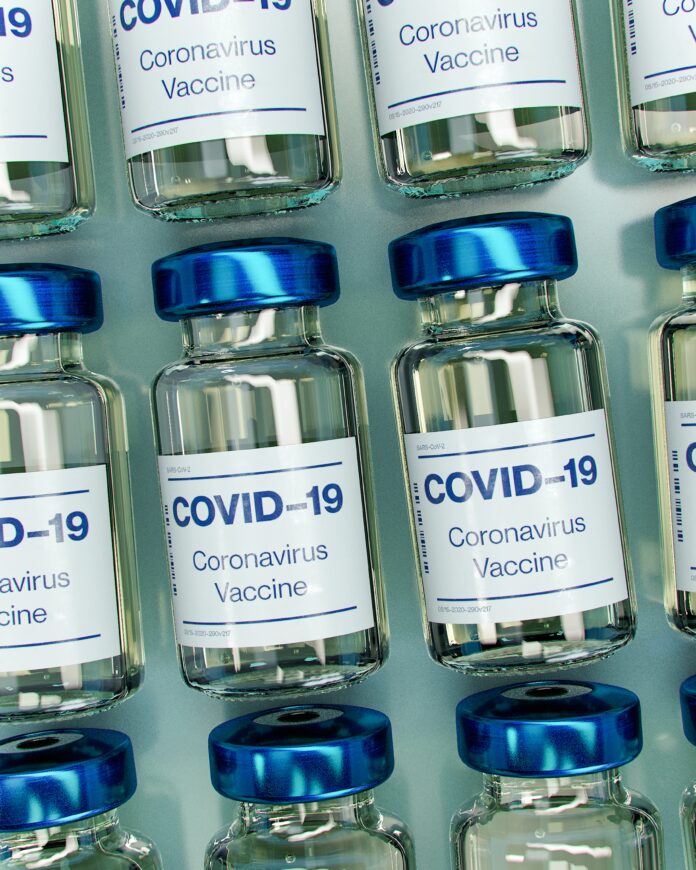April 12, 2021: “AstraZeneca and Saint Luke’s Mid America Heart Institute today announced high-level results of the primary analysis from the DARE-19 Phase III trial assessing the potential of Farxiga (dapagliflozin) to treat patients hospitalised with COVID-19 who are at risk of developing serious complications.
The trial did not achieve statistical significance for the primary endpoint of prevention measuring organ dysfunction and all-cause mortality, and the primary endpoint of recovery measuring a change in clinical status (from early recovery to death), at 30 days.
DARE-19 was the first Phase III trial to evaluate the safety and efficacy of a sodium-glucose co-transporter-2 (SGLT2) inhibitor in patients hospitalised with COVID-19 who also have risk factors for developing serious complications, including hypertension (HTN), type-2 diabetes (T2D), atherosclerotic cardiovascular disease (ASCVD), heart failure (HF) or chronic kidney disease (CKD) Stages 3-4.
Cardiac, renal and metabolic comorbidities have been associated with poor outcomes and death in patients hospitalised with COVID-19.
Mikhail N. Kosiborod, M.D., cardiologist at Saint Luke’s Mid America Heart Institute, Vice President of Research at Saint Luke’s Health System, and principal investigator of DARE-19, said: “DARE-19 provided important data on the potential benefits and risks of using SGLT2 inhibitors to treat hospitalised patients with COVID-19.
While the trial did not achieve statistical significance, the findings are very interesting and valuable, and will inform future clinical science.
Also, of importance, we learned that dapagliflozin’s well-established safety profile was consistent in DARE-19.”
Mene Pangalos, Executive Vice President, BioPharmaceuticals R&D, said: “Prior to the DARE-19 Phase III trial, there was little data on the use of SGLT2 inhibitors in hospitalised patients with COVID-19 and we have now helped to fill this knowledge gap. We look forward to the efficacy and safety data being presented in the coming weeks.”
The safety and tolerability profile for Farxiga at 30 days in the trial was consistent with the well-established safety profile of the medicine.
The full DARE-19 trial results will be presented at the American College of Cardiology Scientific Sessions in May 2021.
DARE-19
DARE-19 was an international, randomised, double-blind, placebo-controlled, investigator-sponsored Phase III trial in 1,250 patients evaluating the efficacy and safety of Farxiga in addition to background local standard of care therapy in adults who are hospitalised with COVID-19 at the time of trial enrolment.
Patients enrolled in DARE-19 also had a medical history of HTN, ASCVD, heart failure, T2D or CKD Stages 3-4 and received Farxiga or placebo for 30 days.
Farxiga
Farxiga (dapagliflozin) is a first-in-class, oral, once-daily SGLT2 inhibitor.
The research for Farxiga is advancing from cardiorenal effects to prevention and organ protection as science continues to identify the underlying links between the heart, kidneys and pancreas. Damage to one of these organs can cause the other organs to fail – contributing to leading causes of death worldwide, including T2D, HF and CKD.
For nearly a decade Farxiga has been an effective monotherapy and part of combination therapy as an adjunct to diet and exercise to improve glycaemic control in adults with T2D.
Following results from the landmark DECLARE-TIMI 58 Phase III cardiovascular (CV) outcomes trial, it is approved in adults with T2D to reduce the risk of hospitalisation for heart failure or CV death when added to standard of care.
Farxiga is also the first SGLT2 inhibitor approved for the treatment of HFrEF in adults with and without T2D.
In August 2020, results from the DAPA-CKD Phase III trial demonstrated that Farxiga achieved unprecedented reduction in the composite risk of kidney failure and CV or renal death in patients with CKD with and without T2D versus placebo.
It is now the first SGLT2 inhibitor shown to significantly improve overall survival in a renal outcomes trial for this patient population and provide organ protection. Farxiga is not yet approved for the treatment of CKD.
AZ’s Farxiga-Tracked heart failure following acute myocardial infarction
DapaCare is a robust programme of clinical trials to evaluate the potential CV, renal and organ protection benefits of Farxiga.
It includes more than 35 completed and ongoing Phase IIb/III trials in more than 35,000 patients, as well as more than 2.5 million patient-years’ experience.
It is currently being assessed in patients with HFpEF in the DELIVER Phase III trial.
Farxiga is also being tested in patients without T2D following an acute myocardial infarction (MI) or heart attack in the DAPA-MI Phase III trial – a first of its kind, indication-seeking registry-based randomised controlled trial.
AstraZeneca in CVRM
Cardiovascular, Renal and Metabolism (CVRM) together forms one of AstraZeneca’s three therapy areas and is a key growth driver for the Company.
By following the science to understand more clearly the underlying links between the heart, kidneys and pancreas, AstraZeneca is investing in a portfolio of medicines for organ protection and improve outcomes by slowing disease progression, reducing risks and tackling co-morbidities.
The Company’s ambition is to modify or halt the natural course of CVRM diseases and potentially regenerate organs and restore function, by continuing to deliver transformative science that improves treatment practices and cardiovascular health for millions of patients worldwide.”
https://www.astrazeneca.com/content/astraz/media-centre/press-releases/2021/update-on-farxiga-covid-19-dare-19-phase-iii-trial.html


